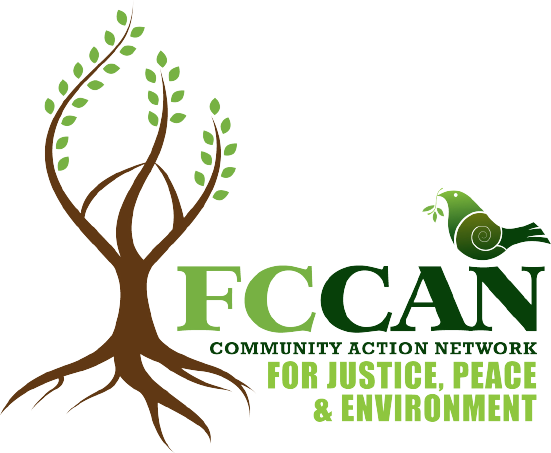Creating Community Spaces
How are your hearts?
We hope you are finding moments of ease. Soon we will be celebrating the first day of Summer in the Global North, and we’re feeling gratitude for the signs of new life surrounding, and sadness, too. Our world is rife with pain and ripe with possibility— and it’s really hard sometimes to hold the multitudes. From the recent release of the IPCC report to the ongoing devastation of gun violence in our communities, many of us are cycling through feelings of anger, anxiety, and grief. We might feel activated and energized to take action, or we might feel apathetic or exhausted, too. Crises such as this are devastating and interconnected. What is continuing to happen in Ukraine is heartbreaking. And, as climate journalist Mary Annaïse Heglar reminds us in Hot Take, it is happening to communities in Palestine, too, and wherever “people [are] running from conflict and collapse.” When we are heartbroken and feeling helpless, it can be grounding to remember that multifaceted problems have manifold solutions. For those of us seeking to transmute our deep sorrow into sustainable advocacy, we can donate to mutual aid efforts in Ukraine through Solidarity Apothecary; fight against the dissolution of democracy in the so-called United States through signing up with Working Families Party; support practices of land back through NDN; learn more about how to advance fossil fuel divestment thanks to Food and Water Watch; or strive to seed justice through Jewish Voice for Peace.
It’s the capitalist and colonial core of the fossil fuel plutocracy that powers war, and so any effort on our part to advocate for renewable energy, nurture community resilience, and support collective liberation is a push toward peace.
As Kayly Ober, senior advocate and manager of the climate displacement program for Refugees International, says in a recent Atmos interview with journalist Yessenia Funes, the current crisis “shows us that we must have a conversation about responsibility sharing and the ability to welcome and treat refugees with dignity—of all walks of life.” Facilitating those conversations can take courage, patience, and dedication, but it is a life-giving (and life-saving) practice, and one we can bring into being this very day in our communities.
As we continue to navigate compounding crises, we’ve found ourselves reflecting on what it means to be community organizers in an era of disaster and disinformation. Organizing is a process of translation, of world-building, of reconfiguration.
Creating art on the cusp of collapse is a life-giving practice that asks us to continually reorient to our conceptualizations of service and storytelling. How are we embodying right relationship? Meeting collective needs? Nurturing liberatory narratives? As part of contemplating these questions, we’ve been thinking about what it means to inhabit spaces—in person and online, in particular. Although social media can be a force for meaningful connection, the confluence of racist algorithms and celebrity culture has radically reshaped popular platforms for building relationships (check out conceptual artist and community academic Mandy Harris Williams’ Slow Factory course on “Forbidden Systems” for a critical survey of digital landscapes). Scrolling through IG stories for even 5 minutes can pull our heart (and our attention) in a million and one directions, and so we’ve found ourselves retreating from online spaces in the hopes of sustaining our focus and preserving our capacity to care.
Our work in the community is to inspire civic engagement, nurture communities of care, and cultivate accountability to our Earth and each other through community organizing and coalition building. We want to create spaces where we can come home to who we are and how we want to show up in service.
If you have the time, we would love to learn more from you all about where you’re at and what you’d like to see from us at FCCAN. Would hosting monthly community forums feel supportive? Bimonthly skill shares? or Community-led Trainings on social justice and mutual aid? As our friend Milla Prince reminds us, the future is relational, and if what we are doing isn’t rooted in relationship—with our members, with our constellation of creative contributors, with our community—we can’t make good on what we’re here to do. So your thoughts and feels really mean so much to us! Write to us at info at fccan.org with your thoughts & feedback.
We’ve got a lot of goodness growing this Spring—from the launch of our School Justice PSD on May 26th with the showing of On These Grounds, to the Womxn of Color movement series with the BIPOC Alliance—and we’re really excited to share with you all some of the seeds we’ve been tending to this season.
Check in on your people. Tend to your places. And continue to take good care—to rest when you need, to find joy where you can.

